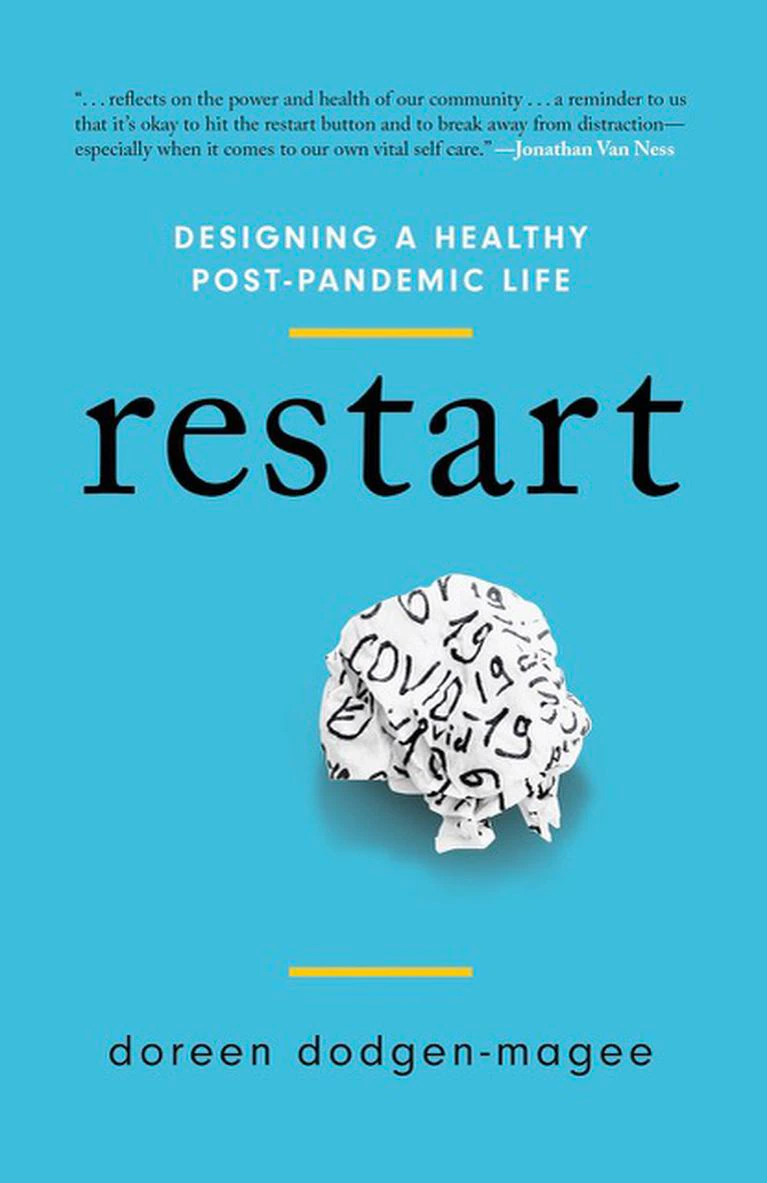
The mask mandate was just lifted in Oregon this past weekend, but the pandemic isn’t over yet.
The last two years have left many with trauma, grief and uncertainty.
So how does one begin to plan for the next phase?
Author Doreen Dodgen-Magee has a few suggestions. She’s the author of the book “Restart - Designing a Healthy Post Pandemic Life” and she spoke with OPB’s Paul Marshall.
Paul Marshall: In the book, you talk about helping children restart since COVID-19 has been stressful and scary for kids. Can you talk about some of the advice for children?
Doreen Dodgen-Magee: I think the biggest thing that I would say in kind of helping shepherd children through this time is to start talking with them in really intentional ways about what we’ve just come through.
Naming things like the fear that they have just come through, or the irritation and anger that they’ve witnessed both of the grown people around them and in their own selves.
It will help them provide some ways that they can talk about and find their way toward tools for working through the big emotions and this is the biggest thing.
Whatever is mentionable is manageable, Mr. Rogers said that a long time ago.
The biggest thing is not to fear having the wrong conversation. It’s just to be willing to enter the complex and maybe even confusing and difficult to manage conversations.
Marshall: How important is it to digitally disconnect during this time?
Dodgen-Magee: Our links with our devices and with technology and the whole digital domain has in many ways saved us and that is a beautiful thing. However, the way in which we engage with our technology in many ways brought us to the time of quarantine and pandemic bereft of the very skills that we would have needed to thrive within it and then our kind of understandably necessary reliance upon it during a time of great fear and then also a time of great cultural unrest.
The reality is, however, that some of the time if we are not coming back to just our own bodies and our own minds and being able to come to a state of calm.
Marshall: COVID has had this impact on everyone. And you talk about how we can feel different emotions about that impact whether it’s grief, anger or guilt. So how can one attempt to resolve those varying feelings?
Dodgen-Magee: We all are going to, as you say, have so many feelings and this is such a difficult time because we also know that things like the mental health system are so taxed. We know that coping strategies are so bumped up right now.
The most important thing again is to kind of create the environment where one can be honest with themselves about the ways in which they’re coping and the very real concerns that might be present regarding their mental health.
We’re in a time where we’re seeing this kind of psychological construct of languishing more than we’ve ever seen culturally.
To languish means to kind of experience a profound lack of mental health to feel as though one is sort of dormant and not being able to move forward. And there’s this lack of motivation that also occurs.
The most active we can get in growing our sense of resilience, doing anything that we can do to begin to expand our sensory awareness of the world and to breathe deeply of some fresh air will profoundly impact the way that we can kind of settle into a at least a little bit of a new cadence tending to our mental health and our wellbeing.
Marshall: One of the themes that came up in the book was being aware of one’s privilege during the pandemic. There are many people who feel like they would like to go back to normal when the pandemic is over and there are those that say normal was never really good for me or others and we should use this as an opportunity to wipe the slate clean. So how do you reconcile those two very different perspectives?
Dodgen-Magee: Regardless of what your strong feelings are and particularly if you’re feeling is “I just want to be back to normal,” it is really important that we stop and understand that that is a privileged perspective, that there are others whose normal has been completely taken away from them.
The more we can see that we are or we may be the center of our own universes, but our experience is different from that of others. And whatever one can do to become curious about that and past curiosity grow empathy toward it. The more we’re going to be able to work together to address the needs of all of us.
Marshall: Has anything changed for you in the time since writing this? Is there anything you would go back and write differently or anything new that you’ve learned?
Dodgen-Magee: Oh gosh. I think the thing that I wish I could include an addendum to is about psychological flexibility. We just did not know that this was going to go on so long. We started running this race that is COVID not having registered or trained for the race and thinking it was a sprint and we didn’t realize till about mile 5 that we were running a marathon.
So the more psychological flexibility we can create and nurture and maintain the better off we’ll be. Because it’s just gonna be a while before we have certainty.
This story was originally published by Oregon Public Broadcasting.